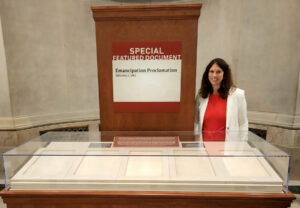JNCO jeans, frosted tips velour track suits — all things kids from the ‘90s may or may not regret during their non-linear path to adulthood. Another thing to add to that list? A liberal arts education.
According to a May 2021 Federal Reserve survey, nearly 2 in 5 American adults regret their college majors but, as The Washington Post reports, “those who studied STEM subjects — science, technology, engineering and mathematics — are much more likely to believe they made the right choice, while those in social sciences or vocational courses second-guess themselves.”
Where Did All the History Majors Go?
Such regrets have remained relatively consistent since 2016, when the first data began to appear on the economic well-being of U.S. households.
The Great Migration toward STEM subjects began in earnest in 2008, during the Great Recession, as fewer U.S. students who wanted to study in the humanities or social sciences, including history, art, philosophy, English and foreign languages.
“With a wave of younger millennials who, scarred by the financial crisis, are increasingly fixated on majors with better job prospects,” Andrew Van Dam wrote in The Post.
GET HISTORY’S GREATEST TALES—RIGHT IN YOUR INBOX
Subscribe to our HistoryNet Now! newsletter for the best of the past, delivered every Monday and Thursday.
Pandemic Panic
The ongoing pandemic has further widened the divide between humanities, social sciences and art majors and those who choose STEM studies. To perhaps the surprise of no one, the survey found that education went from below-average regrets before the pandemic to above-average regrets in 2021.
Humanities specialists, on the other hand, argue that such majors not only provide the opportunity for higher-earning opportunities as one rises through their career but also encourage skills, like critical thinking, that are more universally useful, not locking students into one vocation with no other career options later in life.
Speaking to The Post, Quinn Dombrowski, an academic technology specialist at Stanford University, said that “When we work with undergraduates on digital humanities projects it’s often easier to take a humanities undergrad and teach them just enough coding to do what they need to do rather than taking some of the CS [computer science] majors who can do the coding in their sleep but don’t really think about the questions in the nuanced ways that we need them to.”
It Always Comes Down to Money
Yet the lure of highly paid careers off the bat and the ability to unburden oneself from staggering college debt is now increasingly taking precedence.
“It’s fine to tell people that this sets them up for brighter prospects in the longer term for their career,” Quinn said. “But students — especially [those] who’ve taken on substantial student debt — have immediate needs for paying rent and then paying those loans back.”
When it comes to best-paying majors, the top 10 are all related to engineering — with the exception of computer science, according to the New York Federal Reserve’s recent report of salaries for college graduates.
History majors fare much worse, with an 8% unemployment rate and a starting median wage of $40,000 and a mid-career jump up to $65,000. (The average per capita income in the U.S. is $35,384, according to the U.S. Census Bureau.)
“But those typical earnings hide that who you are matters just as much as what you study,” according to The Post. “Many of the highest-earning humanities majors earn more than the lowest-earning STEM majors, [economist Douglas]
Webber’s research shows. For example, the top quarter of history majors earn $4.2 million over their career. That puts them above the bottom quarter of earners from even the highest-paying majors, such chemical and aerospace engineering.”
So, dream big, kids. Be the next Barbara Tuchman. Or don’t. The stats are there.
historynet magazines
Our 9 best-selling history titles feature in-depth storytelling and iconic imagery to engage and inform on the people, the wars, and the events that shaped America and the world.






